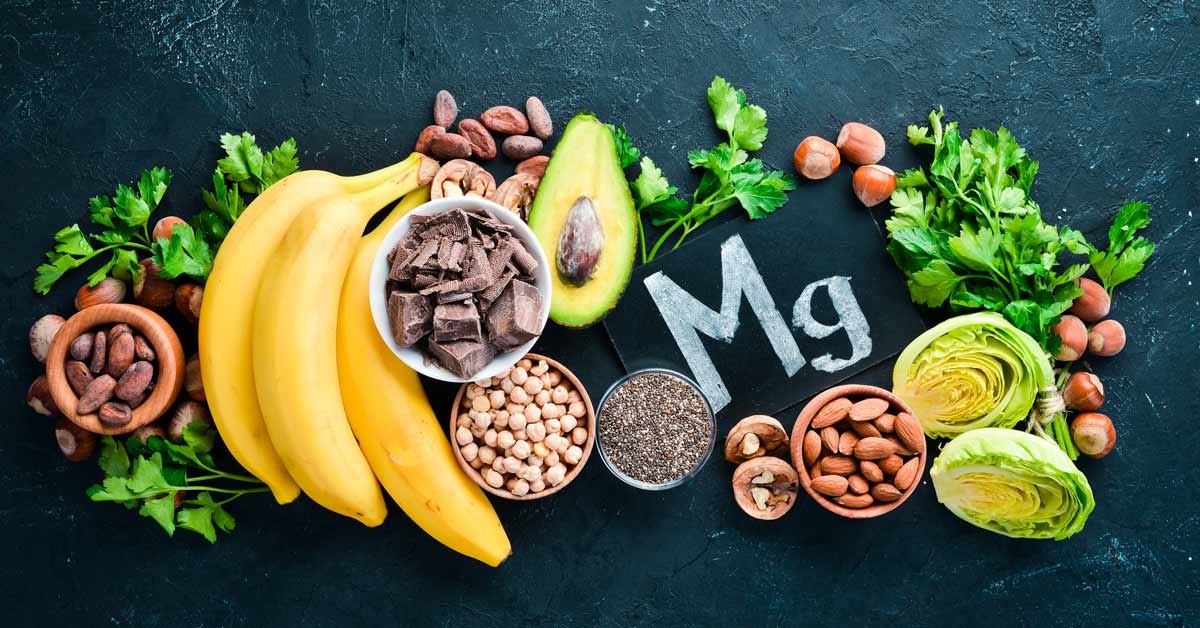- Empty cart.
- Continue Shopping
The Role of Magnesium in Women’s Health

Magnesium is a vital mineral that plays a significant role in various aspects of women’s health throughout their lives. From supporting bone health to managing PMS symptoms, magnesium is essential for overall well-being.
What is Magnesium?
Magnesium is a mineral that is involved in over 300 biochemical reactions in the human body. It is essential for the proper functioning of muscles, nerves, and enzymes. Magnesium is also required for the synthesis of DNA, RNA, and proteins. It is obtained through dietary sources such as nuts, seeds, leafy green vegetables, and whole grains.
1. Bone Health
One of the primary roles of magnesium in women’s health is its contribution to bone health. Alongside calcium and vitamin D, magnesium helps in the formation and maintenance of strong and healthy bones. It stimulates the activity of osteoblasts, the cells responsible for bone formation, while also inhibiting osteoclasts, which break down bone tissue. Adequate magnesium intake is crucial for preventing osteoporosis, a condition characterized by weakened bones and a higher risk of fractures, which is more common in women, particularly postmenopausal women.
2. PMS Symptom Relief
Many women experience premenstrual syndrome (PMS) symptoms, including mood swings, bloating, and cramps, in the days leading up to their menstrual period. Magnesium has been found to provide relief from these symptoms. It helps relax the muscles and alleviate cramps, while also reducing water retention and bloating. Moreover, magnesium can have a calming effect on the nervous system, potentially helping to stabilize mood and reduce irritability associated with PMS.
3. Cardiovascular Health
Magnesium is crucial for maintaining cardiovascular health in women. It helps regulate blood pressure by relaxing blood vessels and improving blood flow. Adequate magnesium intake has been linked to a reduced risk of hypertension (high blood pressure), which is a significant risk factor for heart disease. Additionally, magnesium supports the normal rhythm of the heart, making it essential for preventing arrhythmias (irregular heartbeats).
4. Menopause and Hormone Balance
During menopause, women often experience hormonal changes that can lead to symptoms such as hot flashes and mood swings. Magnesium can help alleviate these symptoms by supporting hormone balance. It plays a role in the production and regulation of hormones, including estrogen and progesterone. Ensuring adequate magnesium intake during menopause may contribute to a smoother transition and reduced discomfort.
5. Muscle Function and Relaxation
Magnesium is essential for proper muscle function and relaxation. It works in tandem with calcium to regulate muscle contractions. When there is an imbalance between magnesium and calcium levels, it can lead to muscle cramps and spasms. Women who engage in regular physical activity or experience muscle tension can benefit from sufficient magnesium intake to support muscle relaxation.
6. Mood and Mental Health
Magnesium plays a role in regulating mood and mental health. It is involved in neurotransmitter production and function, influencing mood and stress response. Low magnesium levels have been associated with symptoms of anxiety and depression. Ensuring an adequate intake of magnesium may contribute to better emotional well-being and mental health for women.
7. Reproductive Health
During pregnancy, magnesium is vital for both the mother and the developing fetus. It supports muscle function, including the uterus, and helps prevent complications such as preterm labor and preeclampsia. Adequate magnesium intake is also essential for the development of the baby’s bones and overall growth.
8. Diabetes Management
Women with diabetes, whether type 1 or type 2, can benefit from magnesium’s role in glucose metabolism. Magnesium helps regulate insulin function and enhances insulin sensitivity. It can contribute to better blood sugar control, reducing the risk of diabetes-related complications.
Ensuring Adequate Magnesium Intake
To reap the benefits of magnesium for women’s health, it is essential to maintain adequate magnesium intake. The recommended daily allowance (RDA) of magnesium varies depending on age and life stage but generally ranges from 310 to 360 milligrams for adult women. Good dietary sources of magnesium include:
- Leafy green vegetables (spinach, kale, Swiss chard)
- Nuts and seeds (almonds, pumpkin seeds, sunflower seeds)
- Whole grains (brown rice, quinoa, whole wheat)
- Legumes (beans, lentils)
- Fish (especially mackerel and salmon)
- Dairy products (yogurt, milk)
If you have specific health concerns or conditions that may impact your magnesium absorption or levels, consider consulting with a healthcare provider or a registered dietitian. They can help you assess your magnesium intake and provide guidance on dietary choices or supplements if needed.
In conclusion, magnesium is a vital mineral that plays a multifaceted role in women’s health, from supporting bone health and cardiovascular function to managing PMS symptoms and promoting overall well-being. Ensuring adequate magnesium intake through a balanced diet or supplements, if recommended by a healthcare provider, can contribute to improved health and quality of life for women at all stages of life.








